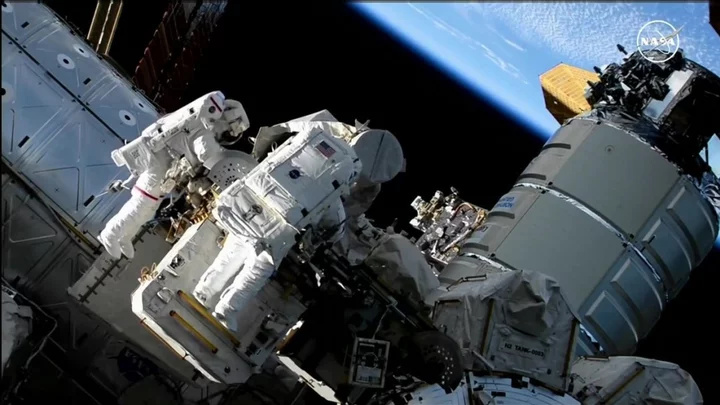
A terrifying thing happens to astronauts' fingernails on a spacewalk
Going on a spacewalk might sound like a lot of fun – but in reality it’s no walk in the park. From their muscles getting less dense all the way to erectile dysfunction, astronauts have to put up with all sorts of things going wrong with their body. And none more gross than what happens to their fingernails. Turns out they just fall right off. The technical term for this is onycholysis, and it has to do with how much – or how little – atmospheric pressure there is in space. Because there is so little ambient pressure in space, astronaut’s space suits need to be pressurised to keep the human body intact. But that’s not good for the hands, it turns out. “Injuries to the hands are common among astronauts who train for extravehicular activity (EVA),” says a 2015 conference paper by space specialists Wyle Laboratories. “When the gloves are pressurized, they restrict movement and create pressure points during tasks, sometimes resulting in pain, muscle fatigue, abrasions, and occasionally more severe injuries such as onycholysis. “Glove injuries, both anecdotal and recorded, have been reported during EVA training and flight persistently through NASA's history regardless of mission or glove model." A 2010 study looked at 232 hand injuries sustained by astronauts, and found that the wider your knuckle joints, the more likely you are to suffer in a space suit. The study suggested that because space suit gloves limit the mobility of these knuckles, the fingers then get put under more pressure. This, in turn, means less blood gets to the fingers, and risks onycholysis. Ouch. Work has been done to try to improve the design of space suit gloves, of course. One team found that the more tailored they were to each astronaut’s finger length the less likely they were to lose their fingernails. That’s no mean feat, however. These gloves are made of at least four layers: one which touches the skin, one which helps create the pressurised environment, another one which makes the pressure layer less stiff, and an outer layer which protects the astronaut from everything on the outside. Mercifully for NASA astronauts at least, they usually have their gloves fitted to each wearer, and with new space suit design moving forward each day, the number of injuries is decreasing. Nonetheless, it sounds like a trip to space is no time for a manicure. How to join the indy100's free WhatsApp channel Sign up to our free indy100 weekly newsletter Have your say in our news democracy. Click the upvote icon at the top of the page to help raise this article through the indy100 rankings.
2023-11-28 21:50

New research suggests dinosaurs were wiped out by more than just a meteorite
We’ve all been told the story of what wiped out the dinosaurs – a giant meteor careers down from the sky, crashes into Earth and bang! The rest is history. But what if that wasn’t the whole story? A new study suggests there may have been more to it than just an asteroid – and it involves climate change. A chain of huge volcanic eruptions which eventually cooled the planet an alarming amount may have been partially to blame, according to research. The study, published in Science Advances and co-authored by Don Baker, a professor in McGill University's Department of Earth and Planetary Sciences, suggests that this might be the case. The researchers looked into volcanic eruptions at the Deccan Traps, a huge, rugged plateau that formed when molten lava solidified and turned to rock. The plateau dates back to around 66-65m years ago, when magma from deep inside Earth erupted to the surface. That just so happens to be around the time when scientists think the dinosaurs met their demise. Baker’s team suggest that the eruptions produced a staggering 1m cubic kilometres of lava, which then turned into rock, which may have played a key role in cooling the global climate around 65m years ago. The scientists say it’s all to do with how much sulphur and fluorine was pumped into the atmosphere as a result of the eruptions. Incredibly, they found the event could have sparked a drop in temperature all around the world, dubbed a “volcanic winter”. Baker said: “Our research demonstrates that climatic conditions were almost certainly unstable, with repeated volcanic winters that could have lasted decades, prior to the extinction of the dinosaurs. “This instability would have made life difficult for all plants and animals and set the stage for the dinosaur extinction event. “Thus our work helps explain this significant extinction event that led to the rise of mammals and the evolution of our species.” The scientists worked it out using new chemical techniques developed at McGill to measure how much sulphur is in the rock formations which came about at the time, then from that, figuring out how much went into the atmosphere. The paper is titled “Recurring volcanic winters during the latest Cretaceous: Sulfur and fluorine budgets of Deccan Traps lavas.” How to join the indy100's free WhatsApp channel Sign up to our free indy100 weekly newsletter Have your say in our news democracy. Click the upvote icon at the top of the page to help raise this article through the indy100 rankings.
2023-11-28 21:25
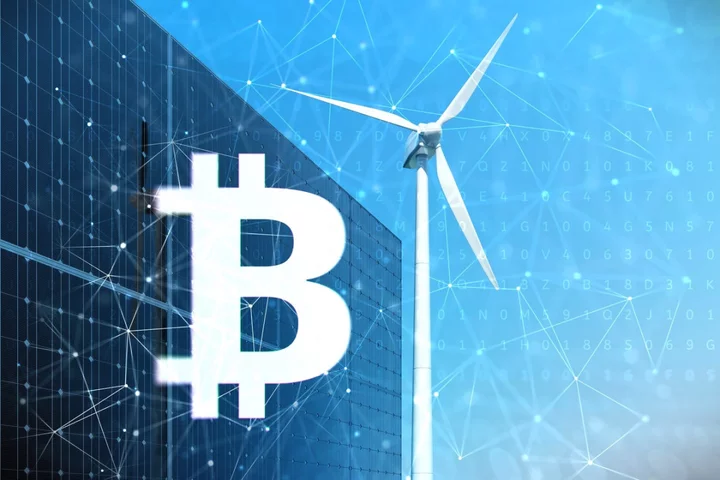
Bitcoin mining could supercharge transition to renewables, study claims
Solar and wind energy installations could earn hundreds of millions of dollars by mining bitcoin during periods of excess electricity generation, according to a new study. Scientists from Cornell University in the US, who conducted the research, said setting up mining operations could reduce the environmental impact of cryptocurrency, while also providing revenue that could be reinvested in future renewable energy projects. “Profitability of a mining system hinges on periods of steady energy availability since renewable energy sources can vary significantly,” said Fengqi You, a professor of energy systems at Cornell University. “Therefore, it is important to site the mining farm strategically to maximise productivity.” The state with the most potential for setting up profitable crypto mining operations is Texas, according to the study, with 32 planned renewable projects capable of generating combined profits of $47 million. California, Colorado, Illinois, Iowa, Nevada and Virginia all showed potential, though setting up mining rigs presents a large initial cost. One way of incentivising such projects, Cornell doctoral student Apoorv Lal suggested, could be the introduction of new policies that provide economic rewards for mining bitcoin and other cryptocurrencies with clean energy ”These rewards can act as an incentive for miners to adopt clean energy sources, which can lead to combined positive effects on climate change mitigation, improved renewable power capacity, and additional profits during pre-commercial operation of wind and solar farms,” Mr Lal said. “We also recommend policies that encourage cryptocurrency-mining operations to return some of their profits back into infrastructure development. This would help create a self-sustaining cycle for renewable energy expansion.” Bitcoin has drawn criticism from environmentalists for the vast amounts of electricity required to support its network and mint new units of the cryptocurrency, with recent analysis from the University of Cambridge estimating that it uses roughly the same amount of electricity as Poland. The plummeting costs of renewable energy mean bitcoin miners are increasingly turning to solar, wind and hydro sources to power their operations. “In its current status, the infrastructure that supports the Bitcoin protocol cannot be sustained, but the beauty of the protocol is that the incentive structure will force miners to adopt the cheapest form of electricity, which in the near future will be renewable energy,” Don Wyper, COO of DigitalMint, told The Independent last year. The latest study, titled ‘From mining to mitigation: how bitcoin can support renewable energy development and climate action’, was published in the journal ACS Sustainable Chemistry & Engineering. Read More Bitcoin mining rate hits all-time high amid record-breaking prediction for 2024 Nasa has received a signal from 10 million miles away Scientists reveal surprise finding from huge study into internet and mental health Nasa has received a signal from 10 million miles away Scientists reveal surprise finding from huge study into internet and mental health Software firm Cloudsmith announces £8.8m investment
2023-11-28 20:53

A Psychedelics Boom Is Minting Environmentalists
It’s hard to imagine a more appropriate setting for Amanda Joy Ravenhill’s first psychedelic experience than Burning Man,
2023-11-28 20:52

UK regulator says Adobe's $20 billion Figma deal could harm sector
(Reuters) -Britain's competition regulator said on Tuesday Photoshop owner Adobe's $20 billion buyout of cloud-based designer platform Figma could harm
2023-11-28 20:51
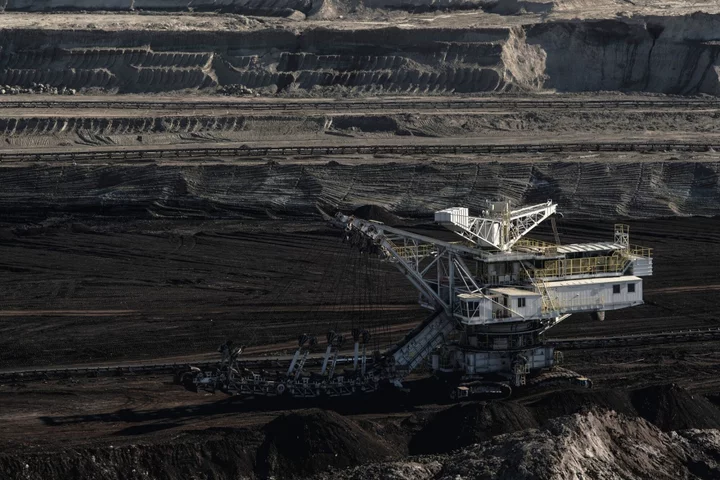
Poland Wants to Speed Up Coal Farewell Under New Government
Poland’s next government wants to accelerate the country’s exit from coal and boost green power sources in an
2023-11-28 20:49

Two US projects highlight divide over carbon removal’s role in climate fight
By Valerie Volcovici In Texas, oil and gas producer Occidental Petroleum is constructing a giant facility to suck
2023-11-28 19:26
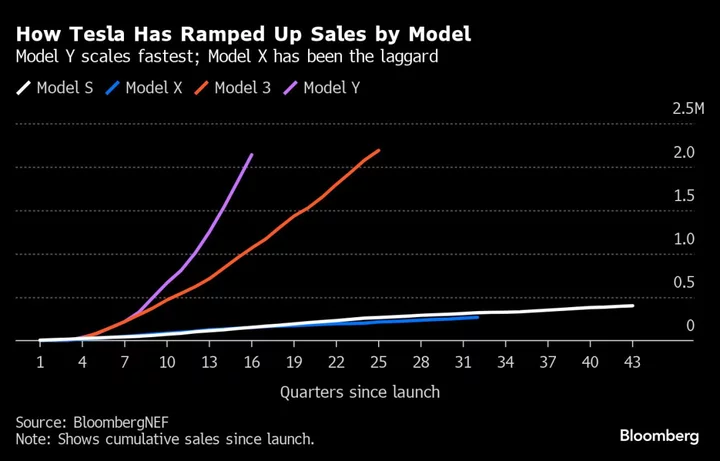
Musk’s Cybertruck Is Already a Production Nightmare for Tesla
The Cybertruck hasn’t even hit the market yet, and Elon Musk already is lamenting that Tesla Inc. has
2023-11-28 19:18
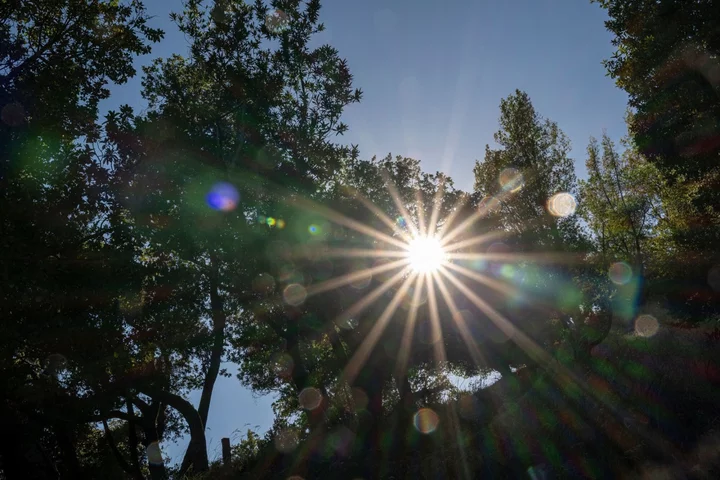
BlackRock Unveils Path to Unleashing $4 Trillion Investment Boom
Researchers working inside a unit of BlackRock Inc. estimate that a reform of public financial institutions could free
2023-11-28 18:49
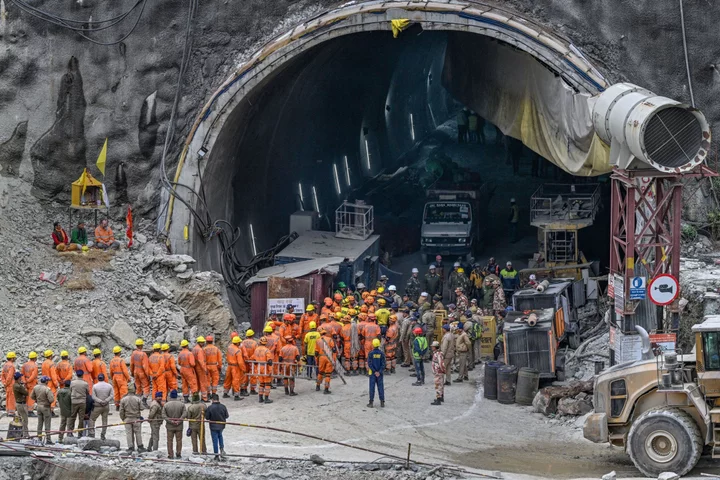
India Rescuers Break Through Collapsed Tunnel Rubble, PTI Says
Indian rescuers have completed drilling through the rubble in the collapsed tunnel in the Himalayan state of Uttarakhand
2023-11-28 18:19
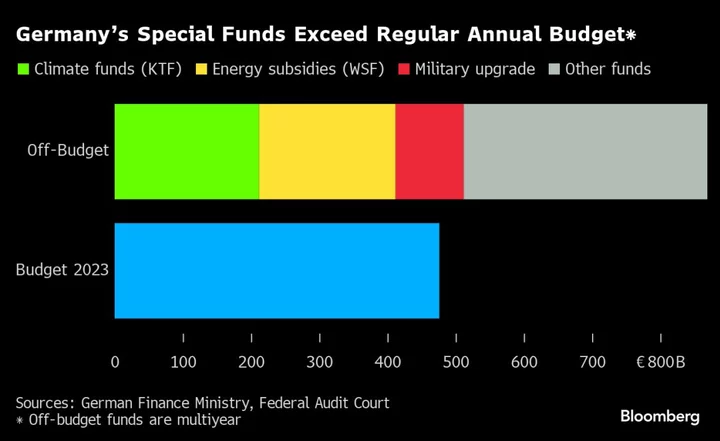
Scholz Says Unforgivable If Budget Shock Halts Germany’s Transformation
German Chancellor Olaf Scholz promised that his government will forge ahead with investments needed to modernize the economy
2023-11-28 17:48
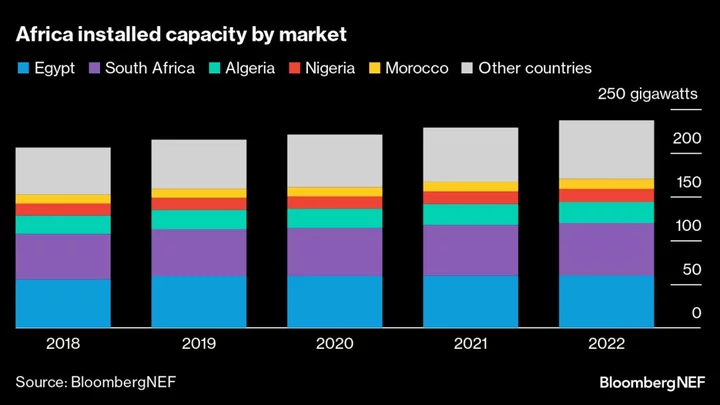
UK Development Bank Weighs Investment in Africa Gas Projects
UK development bank British International Investment is still willing to consider funding energy projects in Africa that run
2023-11-28 17:45
